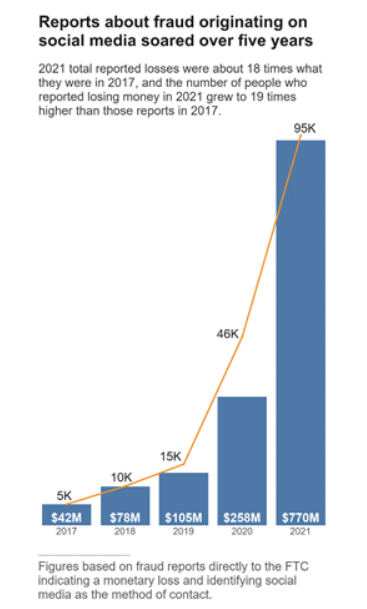Application of social media intelligence(1)
Social media intelligence can be a seemingly far-reaching discipline. Its impact on investigations has been invaluable and is not limited to combating online fraud. Cases ranging from human trafficking to terrorism have benefited from the use of social media intelligence. Let's take a look at a few examples of how social media investigations can be a game changer.
Organized crime:
Social media investigations allow agents to understand the size of criminal enterprises and create a map that shows membership and relationships. This can be very beneficial because it allows investigators to gather evidence of possible guilt.
In 2014, Italian police used social media intelligence to monitor posts by suspected mafia members, and after a 2-year-long investigation, they managed to arrest 95 people connected to the organization's Palermo branch, essentially knocking out two crime families.
Terrorism:
While terrorist attacks are offline crimes, in recent years terrorists have also shown themselves to be very adept at weaponizing social media. However, intelligence officers can use the same platforms to monitor and potentially intercept acts of terrorism in real time.
The European Union (EU) has funded a research project aimed at using social media intelligence to combat cyberterrorism. The program uses machine learning and aims to protect citizens' privacy while acting as an effective counterterrorism tool.
Extremism:
Monitoring content from extremist groups allows investigators to stay ahead of the curve when making decisions. Social media intelligence becomes a valuable asset when dealing with this type of activity, as the metadata and other information that can be gathered from posts can help build a case and keep a close eye on individual participants.
Social media platforms such as Facebook and Twitter appear to be the preferred way for many extremist groups to attract new members and communicate. As these platforms play an increasing role in radicalization, many organizations are staying active online.
Propaganda:
Investigators can view propaganda posts to identify links to known threat actors and organizations. This allows organizations to monitor propagandists and take steps to address offending accounts.
Media manipulation is an evolving industry. Researchers have found that some countries/regions spend $60 million on companies that disseminate bots to create impressions of false political information.
Hate speech detection:
Rumors and hate can spread like wildfire on social media. With social media intelligence, investigators can deduce the source and act on growing unrest.
Between 2014 and 2017, communal violence and unrest between religious groups in India increased by 28 percent, and social media is being used to spread hate speech against minority groups at an unprecedented rate. In one case, WhatsApp was used to spread rumors that led to the murder of a Muslim.
Fraud prevention:
With fraud more prevalent than ever, investigators are using online platforms to quickly identify and track people who pose a threat. Geolocation data and facial recognition solutions are particularly useful in combating cybercrime on social media platforms.
Between 2017 and 2021, the number of scams circulating on social media increased 18-fold. As fraudulent tactics become more sophisticated, consumer losses reach an average of $770 million in 2021. Showing a modicum of skepticism when dealing with people online is becoming increasingly important, especially when it comes to financial matters.

【Artificial Intelligence】●Advanced tips for using ChatGPT-4
銆怬pen Source Intelligence銆戔棌5 Hacking Forums Accessible by Web Browsers
銆怰esources銆戔棌The 27 most popular AI Tools in 2023
銆怤etwork Security銆戔棌9 popular malicious Chrome extensions
銆怰esources銆戔棌The Achilles heel of AI startups: no shortage of money, but a lack of training data
【News】●AI-generated fake image of Pentagon explosion goes viral on Twitter



